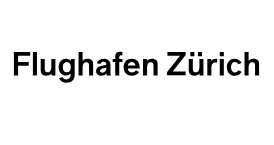The Professorship of Forest Ecology at ETH Zurich is a dynamic interdisciplinary research team that examines both theoretical and applied questions in forest ecology by combining empirical and computational modeling techniques. The overall aim of the group is to further our understanding of the structure and function of forest ecosystems, with a particular focus on mountain areas such as the European Alps. We offer excellent facilities in a relaxing work atmosphere with many opportunities for collaboration within and beyond the group.
Project backgroundThe ever-increasing human pressure on ecosystems has led to the initiative of re-wilding some ecosystems, including forests. In the context of the ongoing EU project "WILDCARD", the carbon and biodiversity implications of the re-wilding of forests and agricultural land are being investigated in a multi-disciplinary team with 16 European partner institutions. The project is partly based on a unique long-term dataset of forest dynamics from forest reserves ( EuFoRIa ) that will continually be updated and expanded in the context of WILDCARD. Yet, these data do not lend themselves easily to inter-and extrapolation in time and space, which however is needed for a Europe-wide assessment of the opportunities and risks of re-wilding of ecosystems. Developing and applying methods and tools to allow for such inter-and extrapolation is the core of our task in this project. A postdoc and a PhD student are working jointly in our lab on this exciting yet demanding project.
Job descriptionOne part of your job will deal with a high-resolution analysis of rewilding patterns in up to half a dozen case study areas across Europe, in close collaboration with scientists from these areas. You have the main responsibility for 1-2 such case studies (one of them in Switzerland) and will be advising the scientists across the project on the computational modeling, which will be based on LandClim. While the emphasis is likely to be on model application (i.e., conducting simulation studies), there may be the need to further develop the model to rectify deficiencies becoming evident in some case study landscapes. Thus, analytical and programming skills are essential. You will be developing and using a set of climate change and rewilding scenarios, including the cessation of forest management and the abandonment of agricultural land.
Another part of your job will deal with the biodiversity implications of re-wilding, based on data from multiple WILDCARD partners as well as the accomplished research project BOTTOMS-UP. Depending on your skills and preferences, Artificial Intelligence (Machine Learning) can be used for predicting aspects of forest biodiversity based on existing as well as simulated inventory data. Furthermore, you can profit from an extensive network of WILDCARD partners to develop ties to biodiversity research (both above-and belowground) as well as carbon-focused research elsewhere in the project.
This is a 2-year postdoc position within the context of WILDCARD. The starting date is as soon as possible for the successful candidate.
ProfileEssential experience, skills, and characteristics:
- A PhD degree in forest sciences, forestry, environmental sciences, ecology, geography, landscape ecology, or a related field
- Experience with the development, testing and application of models of forest dynamic at the stand, landscape, or global scale
- Affinity for data analysis and mathematics
- Knowledge of at least one programming language such as Python, C++ or C#, or R, and Git
- Good knowledge of forest ecology
- Good command of English (oral and written)
- Willingness and capacity to learn
Desirable criteria:
- Strong teamwork and communication skills
- Ability to work independently, with flexibility, humour, and critical thinking
- Experience with High Performance Computing (HPC) and Linux
- Interest to get involved in the use of Machine Learning in forest ecology
- Familiarity with European forest ecosystems
- Good knowledge of statistics
We offer - Your job with impact: Become part of ETH Zurich, which not only supports your professional development, but also actively contributes to positive change in society
- You can expect numerous benefits , such as public transport season tickets and car sharing, a wide range of sports offered by the ASVZ , childcare and attractive pension benefits
> Working, teaching and research at ETH Zurich
We value diversity and sustainability In line with our values , ETH Zurich encourages an inclusive culture. We promote equality of opportunity, value diversity and nurture a working and learning environment in which the rights and dignity of all our staff and students are respected. Visit our Equal Opportunities and Diversity website to find out how we ensure a fair and open environment that allows everyone to grow and flourish. Sustainability is a core value for us - we are consistently working towards a climate-neutral future .













